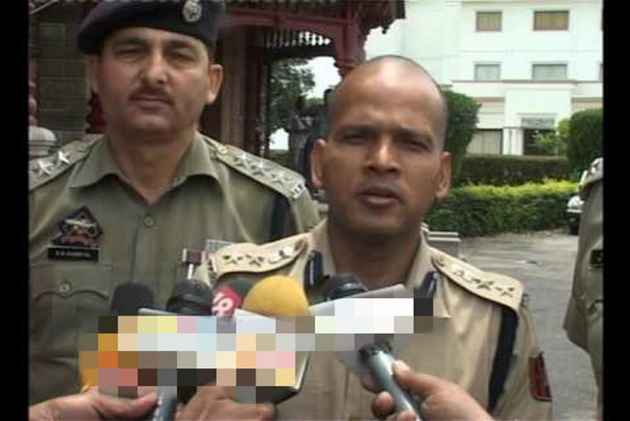Disclaimer: This article is based on The Quint’s story- Centre Wants Action Against IPS Basant Rath, J&K Govt Promotes Him
The All-India services, while conceptualized by the British as a body of pen-pushers and a little-educated help, were continued by the Independent Indian state primarily because it was a cadre of able and efficient administrators selected by an independent body with minimal political interference and biases. Like the Mandarins of China, the officers of the Indian Administrative Services helped formulate and implement the various policies of the state and stays relevant even when dynasties and political parties change.
The Indian Police Services like the Praetorian Guard of Rome has stood guard and maintained the rule of law even when Emperors and Ministers fell, some by their own folly and others by sheer will of the public. The officers of the All-India service are supposed to be able, efficient and most important of all, politically neutral to serve the nation and her denizens, no matter the person or party in power. Most of the officers are of course, politically neutral and incorrupt. However, like all places, the exception exists here too.
A big hue and cry took place when a serving DGP of the UP police, Shri Surya Kumar Shukla not only attended an event organized for the construction of the Ram Mandir but also took a pledge for ensuring its construction. No matter the views on the viability and validity of the Ram Mandir, an IPS officer should not take any such pledge. His role is to ensure law and order, serving the public by adhering to the orders of the Government duly elected by them. An IPS officer is the enforcer of the law, not its maker and while Shri Shukla as a Hindu may make a demand of a Ram Mandir, he is an Indian first and a politically neutral bureaucrat next hence his pledge was wrong and should be condemned.
Another IPS officer making a lot of headlines is Shri Basant Rath, a 2000-cadre IPS and currently serving as an IGP in the Jammu and Kashmir police. By the superficial looks of it, Basant Rath has gone a step further and his articles are regularly featured in The Wire and the Indian Express.
The Wire is well positioned as an anti-Establishment media platform and it is a matter of concern that a serving officer is airing his views on such a platform. What is more shocking that he has made no attempt to categorize his remarks as that of Basant Rath as a person and not of the IPS Rath, a servant of the government?
To be true, Basant Rath is no stranger to controversies. The Social media in the J&K is currently abuzz with criticism and appreciation of Rath’s style of functioning. Basant Rath has regularly contributed to the aforementioned media platforms on a plethora of contentious political issues of the Kashmir Valley. His choice of articles ranges from the alleged mass graves in Kashmir, as well as the CRPF’s action in January 1990, that led to the deaths of over 50 Kashmiri demonstrators. More so, in one of the articles Basant Rath has mounted a scathing attack on TV anchor Arnab Goswami, the Left Wing’s favorite bashing boy in the News fraternity.
Due to his activities, Basant Rath became the subject of an IB inquiry in 2016-17. Not deterred by this IB’s inquiry against him, Basant Rath went on to write over a dozen articles for The Wire without seeking the prior permission of the government. Even the state government’s Home Department sought a detailed report about his activities from then outgoing DGP, K Rajendra Kumar on account of his articles in the aforementioned media platforms. A cursory reading of the articles underlines the fact that his articles are very critical of the government’s policy.
This is a clear and flagrant violation of the service rules. The IB report clearly points out that in a state where danger is ever clear and present, these articles could have “serious consequences” over the morale and discipline of the police and security forces in Jammu and Kashmir. On the basis of the IB report, a letter was sent by the Ministry of Home Affairs, India to the Chief Secretary of the Jammu and Kashmir Government stating the fact that Shri Basant Kumar Rath, IPS, is guilty of violating the Rules 3(1), Rule 6 and Rule 7 of the AIS (Conduct) Rules, 1968 in terms of the All India Services (Discipline and Appeal) Rules, 1969 and implores the Government of Jammu and Kashmir to take relevant disciplinary action against him.
Moreover, the action taken by the State Government should be intimated to MHA at the earliest. However, unless we are missing some obvious irony or an inside joke, the Jammu and Kashmir Government has rewarded him by a promotion making the very mockery of the principles of Indian Federalism and seriously undermining the standing of the Indian Central Government. Basant Rath may be free as a person to criticize the government but he is certainly not free to say anything as a sworn officer of the All India services. The Government of J&K must act against him and rein in his thoughts, some of which have the potential to light an inferno in the tinderbox of Kashmir.
